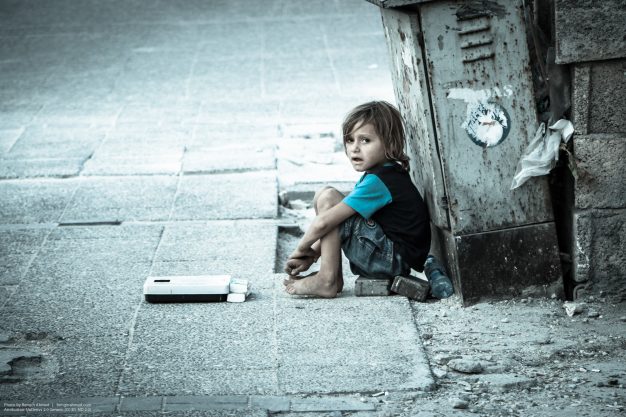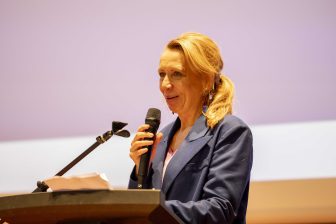
Child Poverty in Western Cities – Q&A with Ayushi Rawat, University of Delhi
Child poverty becomes acute in contexts where children are vulnerable to violence. That’s the assertion of Ayushi Rawat, a PhD student at the University of Delhi, who has studied in detail the occurrence of child poverty in a red light district of the Indian city of Pune. Due to present her findings at next month’s Child Poverty in Western Cities event in Leeds, she spoke to Child in the City.
CiTC: Can you please give an overview of your primary role and in which region (geographically) is your work is mainly based?
AR: I am a PhD student at the Department of Sociology, Delhi School of Economics, University of Delhi, India. I am in the advanced stages of my doctoral work and wish to submit my thesis early next year. My doctoral thesis is on the topic, “Researching Children’s Experiences in Kashmir: Perspectives on Conflict and Resistance”. My ethnographic fieldwork for the study took place in South and Central regions of Indian-Administered Kashmir. I am looking at children’s political beings, lived experiences of conflict and resistance, the role of the home and school as primary social institutions in the comprehension of and coping with conflict. This comes under the larger theme of exploring the subjectivities of childhood in a conflict zone with a lens of the sociology of childhood. As part of my work, I have also been able to devise and write about child-friendly research methods especially when studying children from vulnerable backgrounds where the nature of information we seek is highly sensitive.
CiTC; Measuring child poverty, per se, is affected by so many different global, national and local contexts. How would you define it?
AR: According to me, the definition of child poverty in terms of statistical markers and variables is one aspect and approach to measure it, however, I feel it is the ‘experience’ of child poverty and how it manifests in the child’s ‘everyday’, that can deepen our understanding of child poverty as a concept.
CiTC: Can you please tell us a little about your study looking at the relationship between child poverty and red light areas?
AR: I worked for my Masters thesis with children of sex workers in Budhwar Peth, Pune, which is in Maharashtra, India. Pune has been a historically significant city and Budhwar Peth has been a red light area since the times of the Maratha rule in Pune. I did a study with the children of sex workers and tried to understand their specific vulnerabilities of living and growing up in a red light area. Poverty, which in a place like India, is the primary push factor behind sex work and sex trafficking was experienced by children as a way of life. I am going to talk about the same, in my presentation.
CiTC: In what way(s) can, and does, your role look to make a tangible impact on the lives of children living in poverty?
AR: As a researcher working with children from vulnerable backgrounds since the past few years now, I have gained significant insights into the ground realities of children’s lives in poverty. I have been able to understand the loop holes in the state machinery and absence of strong legal systems of child protection and nurture. I believe these insights can guide advocacy work and assist the governments to build a stronger and more secure environment for children’s growth and development to their fullest potential.
CiTC: To what extent can any key lessons you have learned within your study be adopted and applied in other global child poverty contexts and scenarios?
AR: I feel the larger themes of child vulnerability and what causes this vulnerability, along with children’s perspectives of their own lived realities can be universally used as a basis to develop methods of research, advocacy and execution of child rights and child friendly practices.
CiTC: Why is it that child poverty that exists right under our noses can often go unseen – or is it just seen but ignored and even accepted as ‘normal’?
AR: Child poverty is often overlooked, as the child is still seen as an appendage of the family as a unit. With terms like poverty and the ways in which we measure and define them, child poverty per se becomes invisiblised. The acknowledgement of child poverty as a phenomenon is lacking due to the overshadowing of adult perspectives on children and childhood. So, I don’t think it is ignored despite knowledge, rather, the understanding of child poverty as a concept is lacking. I feel with proper awareness and information, child poverty can be visibilised and addressed.
CiTC: Why, in your opinion, does child poverty become more acute in environments where children are at risk of violence of abuse? Is it a vicious circle?
AR: As I said before, it is about intersectionality and axis of vulnerability. The more vulnerable a child is due to his or her socio-cultural, regional identity, the more he or she is at risk of experiencing child poverty. Environments where children are at risk of violence and abuse need not be the necessary condition for them to experience poverty, rather it is the socio-cultural identity that also impacts and puts them more at risk.
CiTC: What outcomes do you hope that this event, Child Poverty in Western Cities, can achieve, or move towards achieving?
AR: The best thing about the event is the bright mix of delegates that it is bringing on to a single platform. Coming from an academic background, I am very excited to hear and learn from field practitioners as well as policy makers who work towards the actual utilisation and execution of academic knowledge in this field.
CiTC: If you could ask delegates to take one key message away from your presentation, what would it be?
AR: The key message in my entire presentation would be for everybody working with children in some capacity, to pay attention to the multiplicity of childhoods as experienced by different children as well as the significance of children’s voices and perspectives.
Ayushi will be speaking during parallel session six, entitled Children’s poverty and sex work, on day two of the event. Anyone with a working interest in children’s rights is invited to attend the conference, where they can listen to dynamic keynote addresses and take part interactive parallel sessions and discussions, Local field trips will also be held, aimed at showcasing good practice.
It takes place from 21-22 November at The Met Hotel in Leeds. A dedicated website has more information, including the full programme and speakers, and how to book your place.





Please post this to Arvind Gupta at Toys from Trash, University of Puna